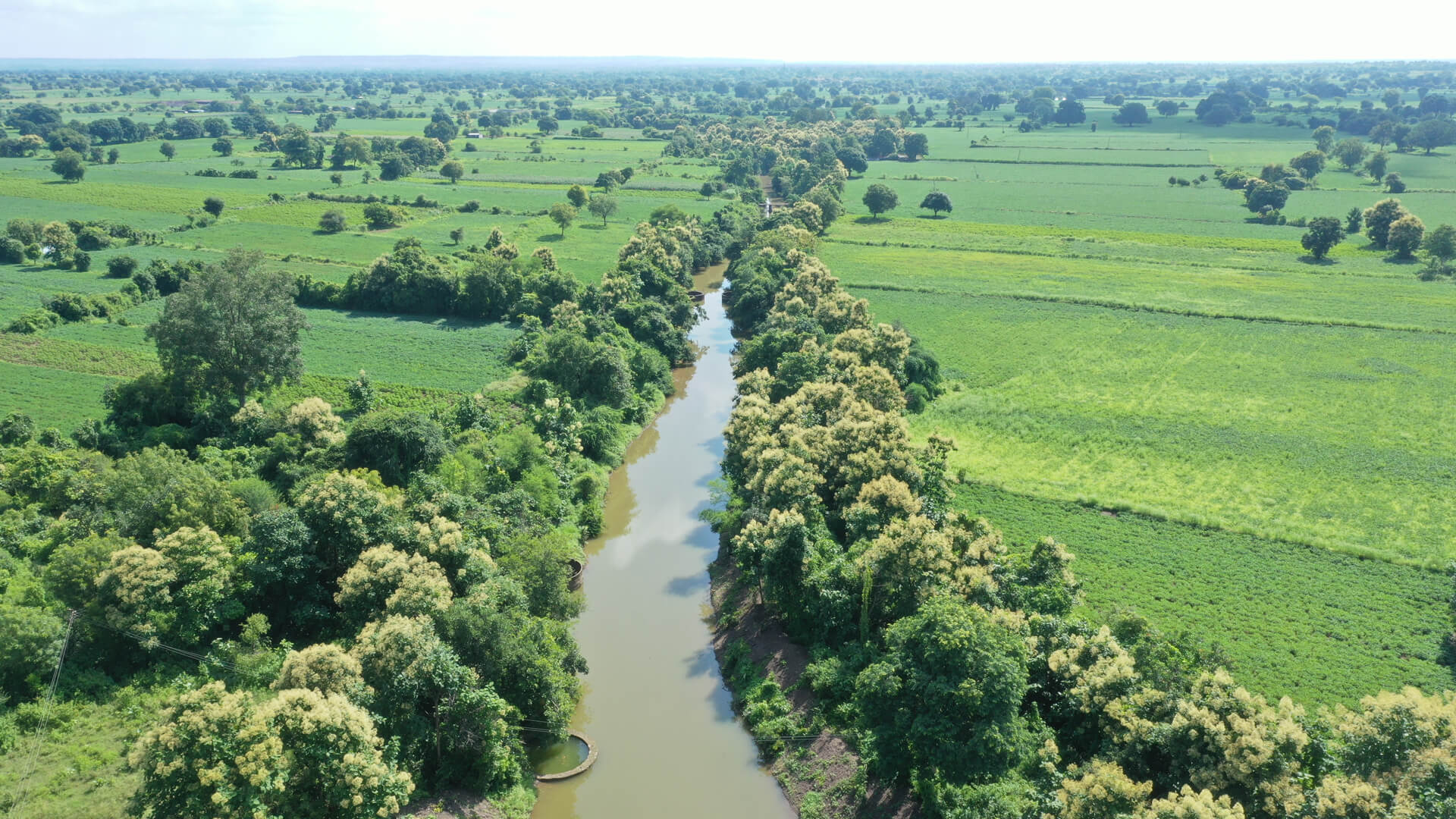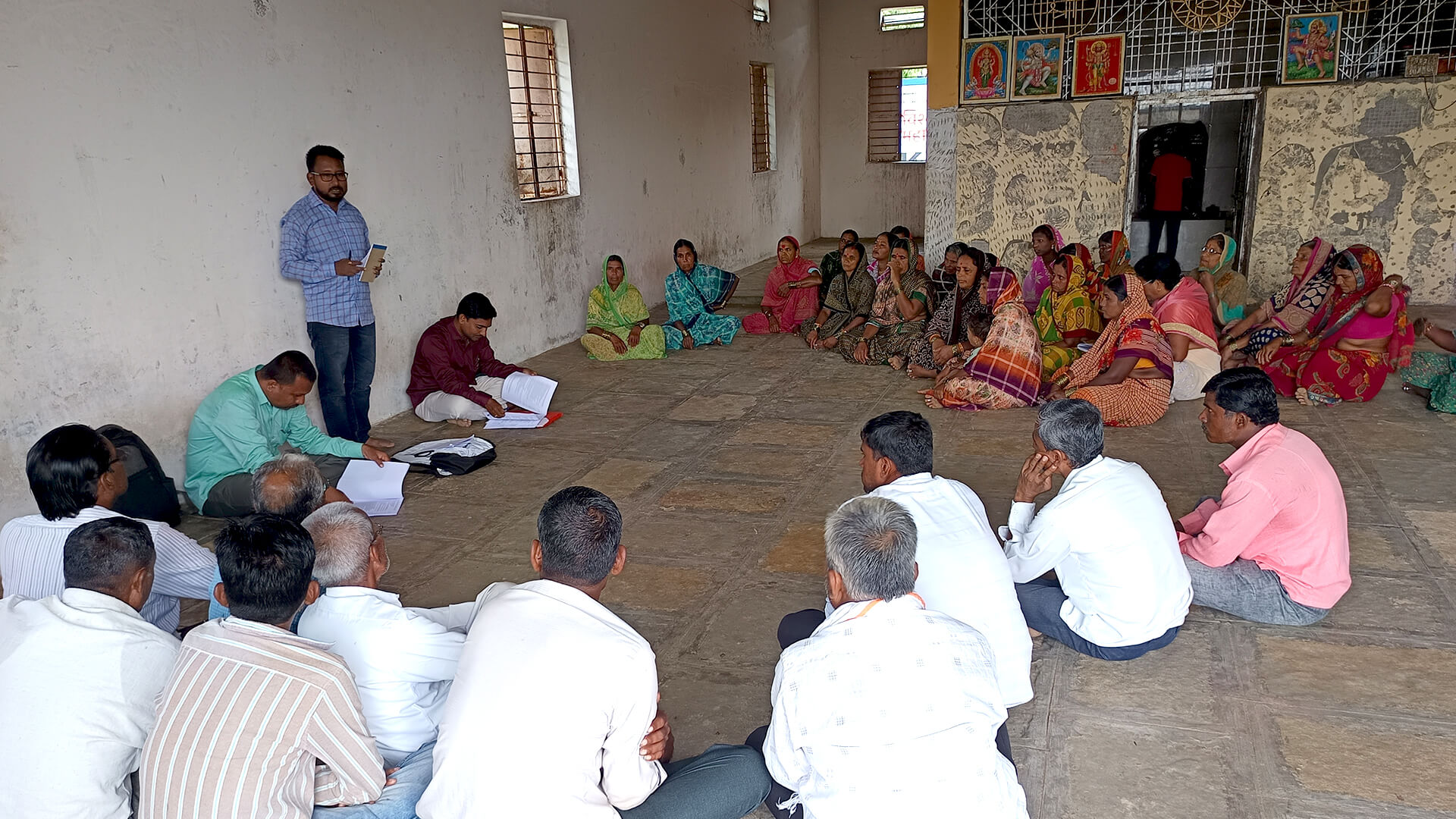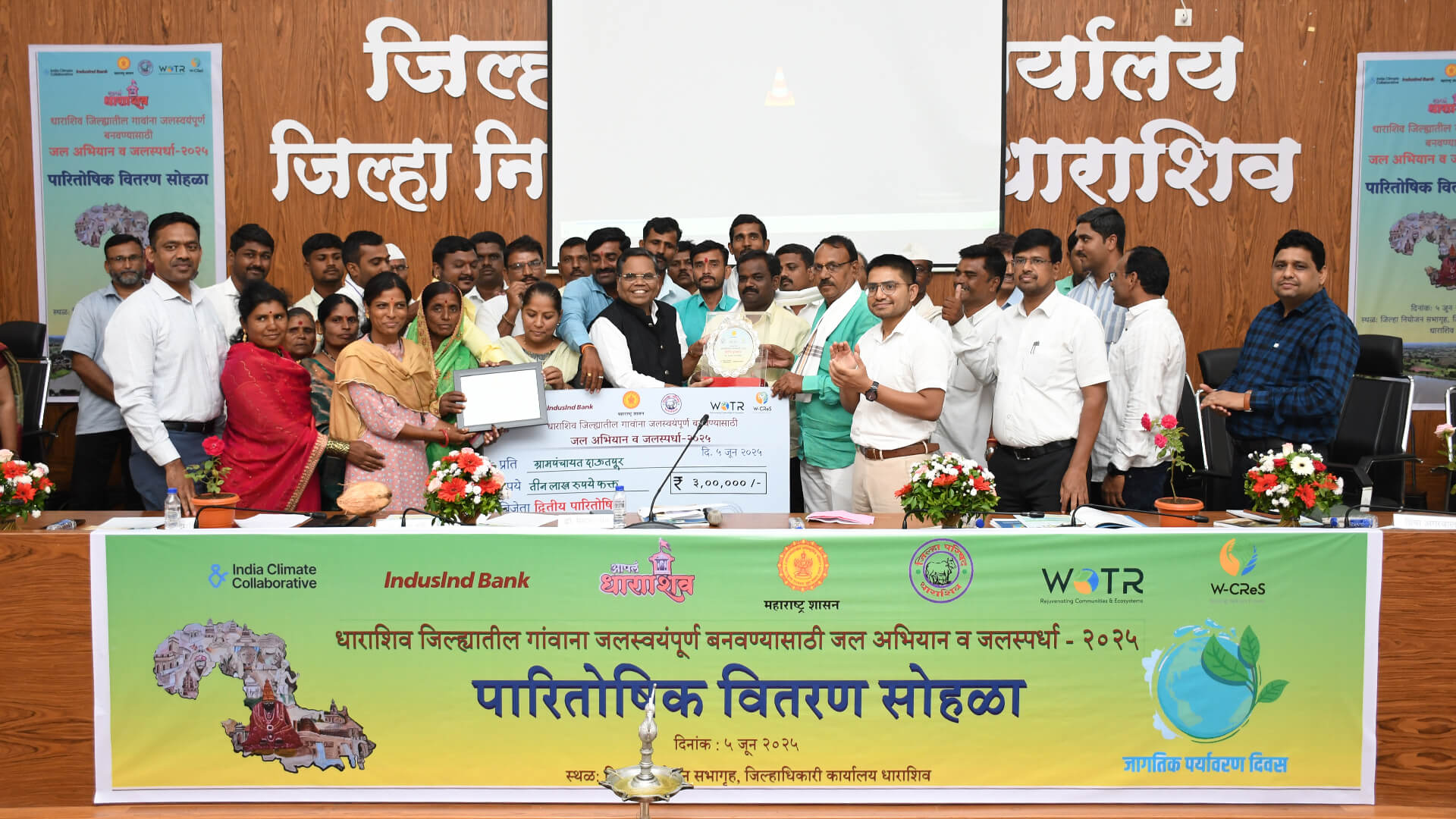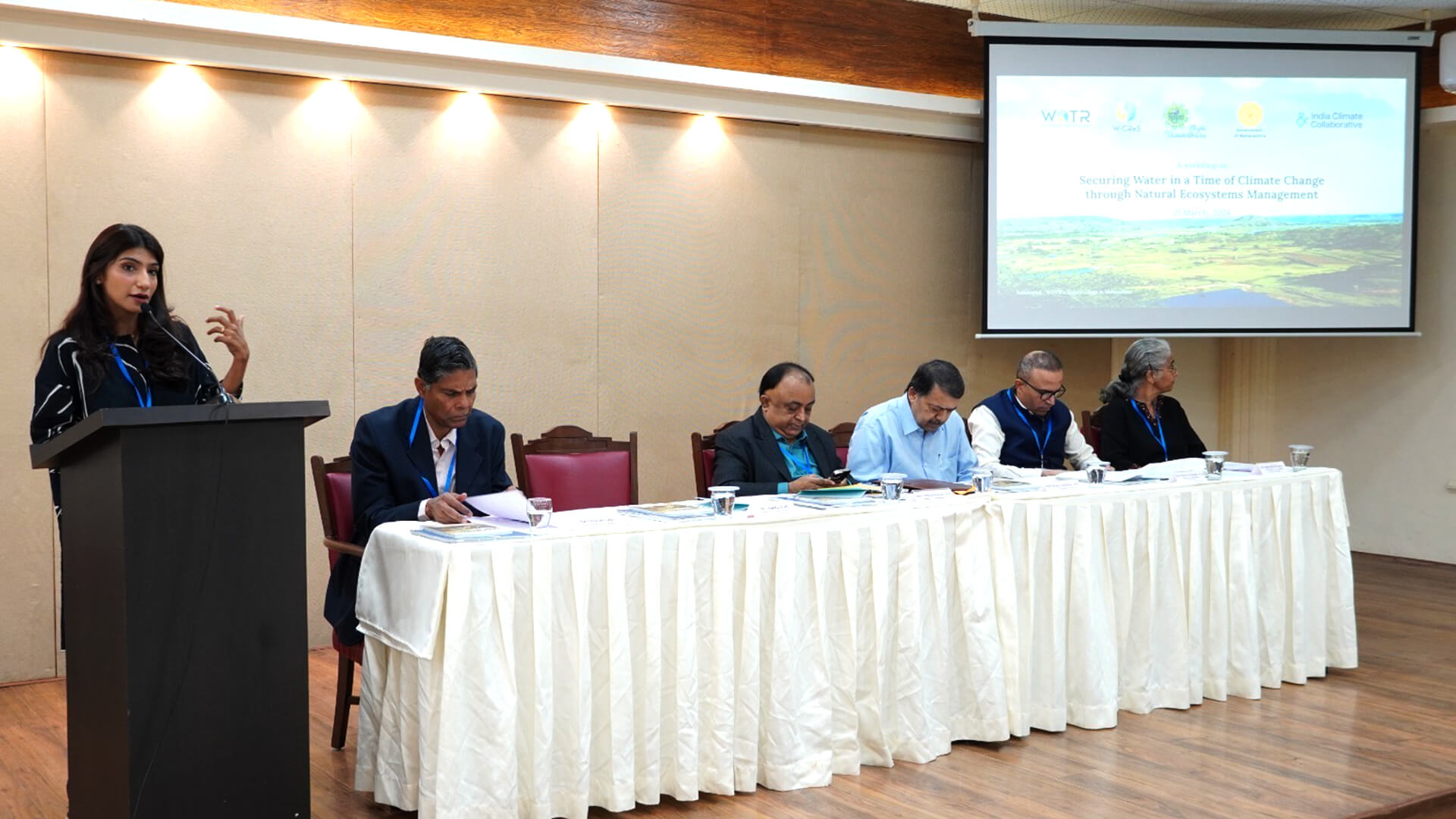What does meaningful collaboration between community, civil society, and government look like in the context of climate adaptation? ICC’s partnership with the Watershed Organisation Trust (WOTR), spanning the last two years, offers a credible and timely example.
Through ICC’s grant to WOTR, the two organisations set out with a shared ambition: to support the Government of Maharashtra in strengthening its climate adaptation planning and delivery. The aim was to go beyond discrete field activities, to co-create a model of how government systems could be engaged from within – through data, tools, and field-tested approaches – while staying grounded in community needs, knowledge, and practices.
Maharashtra, like much of India, is grappling with growing climate vulnerability – from shifting rainfall patterns to rising water stress, 94% of its districts are vulnerable to climate impacts. Its rural economy, heavily reliant on agriculture and allied activities, is particularly exposed. In this context, the need for convergence – across departments, disciplines, and policy mandates – has been frequently acknowledged, and WOTR’s work addresses this.
Through their work, WOTR and WOTR Centre for Resilience Studies (W-CReS) – the research wing of WOTR – demonstrate how inter-departmental collaboration, backed by patient relationship-building and scientifically credible tools, can lead to sustained and structural change. The programme also brought to life cross-sectoral, systems-level alignment between agriculture, water, the environment, and rural development, at the community and policy level in both planning and execution.

Drone photo of a watershed region, Image credits: WOTR and W-CReS
Partnership in Process, Not Just as an Afterthought
With a focus on building institutional partnerships and capacities at all levels, WOTR and W-CReS engage with and capacitate officials within several layers of governmental structures. They adopt a two-prong approach, by incorporating perspectives of experts from within the government, as well as training other officials across departments. Additionally, they have engaged with various local, district, and state departments and ministries over the course of the programme, resulting in the signing of multiple MoUs with a variety of government bodies including the Department of Agriculture (DoA), Project on Climate Resilient Agriculture (POCRA, an initiative under DoA), the Department of Environment and Climate Change (DoECC), the Water Resources Department (WRD), and the Water Supply and Sanitation Department (WSSD). These agreements and approaches unlock tangible co-implementation – from the integration of WOTR's tools and expertise into government workflows, to joint development of roadmaps, assessment frameworks, and policies, and WOTR’s participation in state-led processes.
At the heart of the programme is a strong emphasis on community-centric and community-driven approaches. WOTR works to empower local communities as active decision-makers rather than passive beneficiaries, by equipping them with the knowledge, skills, and technology they need to better understand, manage, and sustain their natural resources and local ecosystems. Through an extensive ground presence with Community Resource Persons (CRPs) and district teams that have engaged and built trust with local communities over a long period of time, WOTR has created a repository of data and a deep understanding of the gaps that exist in community capacities, which grounds their work in reality and guides them towards requisite action. Through their inputs, communities are better able to negotiate for their needs, access public and private resources, and upgrade their techniques and livelihoods. This also transforms the community’s relationship with local governments and stakeholders.

A focus group discussion with farmers for assessing nature-aligned agriculture practices using the NaturePro tool.
Image credits: WOTR and W-CReS
Many Focus Areas, One Ecosystem
The programme was structured around four core areas, each designed to respond to field-level needs and influence systemic thinking:
- Promoting nature-aligned agriculture
- Improving weather-based agri-advisories
- Mainstreaming ecosystem-based adaptation (EbA) in policy and program implementation, and
- Enhancing water stewardship and governance.
For nature-aligned agriculture, WOTR developed the NaturePro framework – a tool to assess and benchmark agriculture at the village level on their climate risk and the extent of their adoption of nature-aligned farming practices. To design this framework, WOTR brought in state agricultural universities, departmental and external experts early in the process of shaping indicators, weightages, and structure. Through a series of external consultations, WOTR combined their expertise with WOTR’s learnings from the field, ensuring both scientific rigour and institutional relevance. Based on the results from the assessments, WOTR is now creating customised village-level Agriculture Adaptation Plans. This will also feed into the agriculture planning process in piloted districts, by laying out a strategy and roadmap under ATMA’s (the agricultural extension arm of the DoA) state-level Natural Farming Mission.
WOTR has also built a digital platform called FarmPrecise – a farm-customised digital agriculture advisory platform that delivers dynamic weather, crop, and livestock specific guidance to farmers, supporting timely and informed decision-making. Several services from FarmPrecise have now been integrated with POCRA and the Government of Maharashtra’s farmer app, MahaVISTAAR-AI, expanding its reach and utility. The platform is also evolving to incorporate AI-powered models for more accurate problem recognition and advisory support.
To ensure large-scale integration of ecosystem-based adaptation (EbA) in state policies, planning, and implementation, WOTR analysed existing policies and programs and collaborated with the DoECC to prepare Maharashtra’s first ever EbA policy across integrated departments. Additionally, they worked with the Ministry of Environment and Climate Change to ensure the inclusion of EbA principles in the Maharashtra State Action Plan on Climate Change (MHSAPCC) 2.0.
Lastly, WOTR’s Water Governance Standard, a toolkit and framework that provides guidelines for assessing the level of water governance (water supply and demand side management, institutions, and governance) at the village level, has been integrated into several government schemes and awards. These include annual awards for state Water User Associations, in partnership with WRD, the Atal Bhujal Yojana competition matrix, and as an assessment tool for the operation and maintenance (O&M) of drinking water schemes under the Jal Jeevan Mission, in partnership with WSSD. This framework was also used to create a district-wide water governance competition in Dharashiv district with WSSD, encouraging community participation and governance in water management. Finally, the Water Budgeting tool, developed by WOTR and W-CReS, has been adopted for the Majhi Vasundahara Campaign, an environmental initiative of GoM aimed at restoring the five elements of nature.
While each of the interventions seem distinct, they are interconnected – agricultural resilience depends on water availability and efficient water management is also a prerequisite for stabilising ecological systems. WOTR’s ability to operate across interlinkages creates points of convergence not only across technical areas (agriculture, water, environment), but across institutions (government, communities, civil society) and levers (policy, technology, science).

The winners of the district-wide water governance competition in Dharashiv on 5th June, 2025, World Environment Day, with officials from the District Administration and Department of Water Supply and Sanitation. Image credits: WOTR and W-CReS
A Model for Scale, Not Just a Pilot
While the programme was anchored in three pilot districts of Maharashtra, its implications of success extend far beyond them. Several tools and frameworks developed during the programme have now been adopted at the state level, and in some cases are being considered for replication in other states. As Maharashtra and other states expand their climate resilience efforts — alongside the Government of India’s push to mainstream climate adaptation — the relevance of this model continues to grow.
More importantly, the approach itself offers a model for how civil society and philanthropy can support systemic transformation. It shows that the role of civil society need not be limited to mere gap-filling or technical service delivery and highlights how philanthropic capital can play a catalytic role in piloting approaches and building long-term capacity — and then step back as public systems take ownership. As more Indian philanthropists begin to consider climate action as part of their giving journeys, this programme offers a credible and replicable model for multistakeholder collaboration that demonstrates that community-first, policy-linked, and partnership-driven execution approaches can deliver outcomes that are both meaningful and scalable.
WOTR’s work proves that when communities, governments, civil society, and philanthropy engage not just as stakeholders but as co-creators, the distance between samaj and sarkar doesn’t just close — it becomes a shared space where lasting change is made possible.

Multi-stakeholder workshop on "Securing Water in a Time of Climate Change through Natural Ecosystems Management," held on World Water Day, 2024, by W-CReS (WOTRCentre for Resilient Studies), in collaboration with the Department of Environment and Climate Change, Government of Maharashtra, and supported by the India Climate Collaborative.
Image credits: WOTR and W-CReS
Written by Priya Agarwal (Senior Associate at India Climate Collaborative).

Subscribe to our Newsletter
Join ICC's monthly newsletter and read more about uplifting climate narratives, innovative solutions, and other updates.




